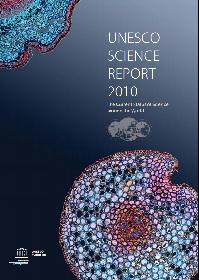Using AI to control energy for indoor agriculture
30 September 2024
Published online 15 November 2010

Most Arab states still lack a national science and technology (S&T) strategy and when policy is in place, it lacks innovation, according to the United Nations Educational, Scientific and Cultural Organization (UNESCO) Science Report 2010. Initiatives in the region, however, are tackling the most serious issues in a bid to create knowledge-based economies
According to the report, released on 10 November, S&T policies and strategies are emerging in more Arab countries. Saudi Arabia, for example, announced its first national science plan in 2003. In 2006, Qatar committed to a 5-year-plan to increase gross domestic product (GDP) expenditure on S&T to 2.8%.
The region's 0.1% to 1.0% expenditure on science remains lower than the world average of 2.2%. Arab states contribute less than 0.4% to the worldwide gross domestic expenditure on science and technology (GERD).
The Arab world is responsible for a meager 1.4% of the scientific papers published worldwide. Arabs register 0.1% of the patents registered internationally. The region can only boast one Nobel laureate in the sciences, Egyptian-born Ahmed Zewail, who won his award in chemistry in 1999 while working at California Institute of Technology in the United States. Boudjema Samraoui, a biologist at Annaba University in Algeria, is the only Arab to enter the list of top 100 highly-cited scientists.
"I think the UNESCO numbers may not be reflective of the real situation," countered Loth Bounatiro, astronomer at Algeria's Centre for Research in Astronomy, Astrophysics and Geophysics. "I know many Arab researchers with several inventions but they fail to patent them due to the high costs associated with getting international patents."
The report blamed the weak scientific performance of the region on poor public-private sector cooperation on research.
"A cornerstone of the large science strategy we have put in place in Saudi Arabia seven years ago is to activate the private sector with strong support from the public sector," said Mansour Almazroui, director of the Center of Excellence for Climate Change Research, King Abdulaziz University, Saudi Arabia.
Basic education is not sufficient to create wealth, to address concerns of food, water and energy security, to provide better health services and better infrastructure. For that science is required.
According to Almazroui, the real hurdles to successful research policies are "brain drain" and the failure of universities and schools to respond to market needs. "Tackling brain drain will be very hard for any Arab country, but matching education degrees to market needs will be solved in Saudi Arabia gradually. I expect this will start to disappear within four years."
Despite the gloomy picture painted by UNESCO, the report found several positive indicators. Newly established science parks in Bahrain, Egypt, Jordan, Morocco, Qatar, Saudi Arabia, Tunisia and the United Arab Emirates can promote innovation partnerships between the private and public sectors.
"Arab states have started to focus on scientific research through new policies. It may lack innovation as mentioned in the report, but I expect we'll see tangible results within the next five years or so," added Bounatiro.
At the upcoming 2011 Arab Summit, taking place in March in Baghdad, Iraq, the announcement of 14 regional science policies is widely anticipated, as well as plans to free the movement of scientists within the region and promote collaborations with the large expatriate community of Arab scientists.
doi:10.1038/nmiddleeast.2010.224
Stay connected: